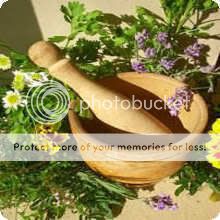
There are many different types of herbs of course. l shall list some. there are to many to list them all Oo
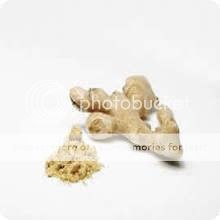
Name: Ada
Other Names:
Ginger; Ardrakam; Shunthi; Adrak; Sunth; black ginger; race ginger; African ginger; sheng jiang;
parts used:
Rhizome (root)
lnfo:
Ginger is an herb indigenous to southeastern Asia. It is cultivated in the U.S., India, China, West Indies and tropical regions.
Ginger is a creeping perennial on a thick tuberous rhizome. In the first year, a green, erect, reed-like stem about 60 cm high grows from this rhizome. The plant has narrow, lanceolate to linear-lanceolate leaves 15 to 30 cm long, which die off each year. The flower scape grows directly from the root and terminates in a long, curved spike. A white or yellow flower grows from each spike.
Remedies
Ginger is used for:
Atherosclerosis, heart disease
Chemotherapy support
Migraine headaches
Morning sickness
Motion sickness
Nausea and vomiting following surgery
Rheumatoid arthritis
Belching
Laryngitis
Vomiting
Constipation
Incontinence
Flatulence
Colic
Spasms
Fever
Eye diseases
Asthma
Colds
Cough
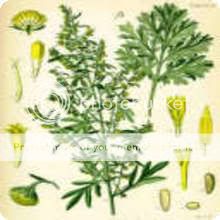
Name: Wormwood
Other Names: Wormwood, absinthium, green ginger, absinthe, old woman, southernwood.
Parts Used: Leaves or flowering tops
lnfo:
The plant grows from 2 to 4 feet in height. The numerous flower heads are short-stemmed and hang in a many-flowered panicle. The capitula are small, globular, inclined and 3 to 4 mm wide and almost as long. The bracts are gray, silky-pubescent with a rounded tip. The outer ones are linear-oblong and pubescent while the inner ones are ovate, obtuse, broad and have a transparent, membranous margin. The receptacle is rough-haired. The flowers are yellow and fertile. The fruit is about 1.5 mm long.
Remedies for:
Loss of appetite
Dyspeptic complaints
Liver and gallbladder complaints
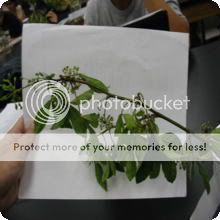
Names:acanthopanax, wu jia pi
Parts Used: Root bark
Remedies For:
Antirheumatic, diuretic, circulatory stimulant
This herb is closely related to Siberian ginseng and is believed to be very useful for the circulation of blood and qi. It also relieves fluid stagnation. Thus, it is useful for the elderly and for underdeveloped or slow-to-develop children. It is effective for chronic rheumatic and arthritic conditions caused by cold, wind, and dampness and for weakness of the bones and sinews.
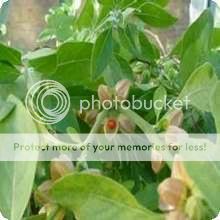
Names: Ashwagandha, winter cherry, Ashgandh, Achuvagandi, Amikkira-gadday, Amkulang-kalang, Amukkira-kilzhangu, Amukran-kizhangu, Asagandha, Asana, Asgandh, Asundha, Asvagandhi, Fatarfoda, Hirimaddina-gadday, Hirre- gadday, Penneroo-gadda, Pevette, Sogade-beru.
Parts Used: Root
lnfo:
A native of India, Pakistan and Sri Lanka, Aswagandha is an important herb used in Ayurveda. The name comes from the peculiar odor of this herb, smell akin to that of a sweaty horse.
Aswagandha is an erect branched shrub with a greenish or lurid yellow flowers. Aswagandha in India is akin to ginseng in other parts of the orient. Both are touted for their longevity enhancing and sexually stimulating properties.
Action: alterative, aphrodisiac, astringent, nervine, rejuvenative, sedative, tonic.
Remedies for:
alcoholism
Alzheimer’s disease
anemia
breathing difficulty
cancer- for general strength during and after chemotherapy
carbuncles
convalescence
cough
emaciation
HIV support, AIDS
immune system problems
insomnia
lumbago
memory loss
mental function, clarity
MS
muscle energy loss
nerve exhaustion, overwork, fatigue
paralysis
rheumatism, rheumatic swellings
sexual debility, infertility, builds semen
skin afflictions
stress
swollen glands
ulcers
women's health - stabilizes fetus, regenerates hormones.
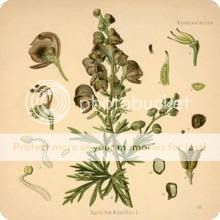
Names: Aconite, Monk's Hood, Vatsnabh, Midhavis
Bis, Bikh, Meetha-tellia.
Action:
Small doses: anodyne, antidiabetic, antiperiodic, antiphlogistic, antipyretic, diaphoretic, diuretic.
Large doses: poison, sedative, narcotic.
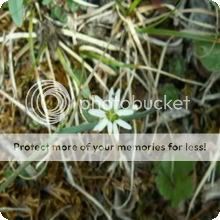
Names:
Addre's mouth, Indian chickweed, satin flower, starwort, stitchwort, tongue-grass, winterweed, starweed, star chickweed, tongue grass, Chickweed.
Parts Used: herb
lnfo:
Chickweed is an annual or biennial weed found in abundance all over the world in gardens, fields, lawns, waste places, and along roadsides. The usually creeping, brittle stems grow from 4 to 12 inches long and bear opposite, entire, ovate leaves. The small white flowers can be found blooming all year long in terminal, leafy cymes or solitary in the leaf axils.
Remedies For:
Alterative, demulcent, refrigerant, mucilaginous, pectoral, resolvent, discutient
Useful for:
Eczema
Insect stings and bites
Traditionally used for all cases of bronchitis, pleurisy, coughs, colds, hoarseness, rheumatism, inflammation, weakness of the bowels and stomach, lungs, bronchial tubes, and any other forms of internal inflammation.
Chickweed may be used externally for inflamed surfaces, skin diseases, boils, scalds, burns, inflamed or sore eyes, erysipelas, tumors, piles, cancer, swollen testes, ulcerated throat and mouth, and all kinds of wounds.
[No Photo]
Names: S-Adenosylmethionine, SAM, Ademetionine
lnfo:
SAMe was discovered in Italy in 1952. It was first investigated as a treatment for depression. It was accidentally noted to improve arthritis symptoms—a kind of positive "side effect." SAMe is presently classed with glucosamine and chondroitin as a potential "chondroprotective" agent, one that can go beyond treating symptoms to actually slowing the progression of arthritis. This has not yet been proven.
SAMe is also sometimes used by Italian physicians in the first weeks of conventional treatment for depression, because it is thought to act more quickly than certain antidepressant drugs.
remedies for:
Principal Uses-
Osteoarthritis, Depression
Other Uses-
Liver Disease, Fibromyalgia.
okay, enough of that O_O.
Something easier.
Herbs used for using spells are usualy-
sage-
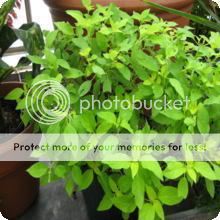
marjoram-
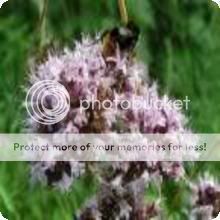
and mugwort-
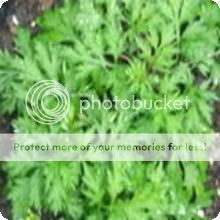
A herb used for driving away evil spirits would be
yarrow-
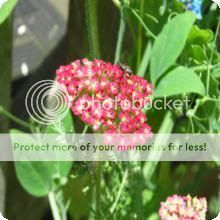
And l'll post more later, l'm too lazy right now. ^^



